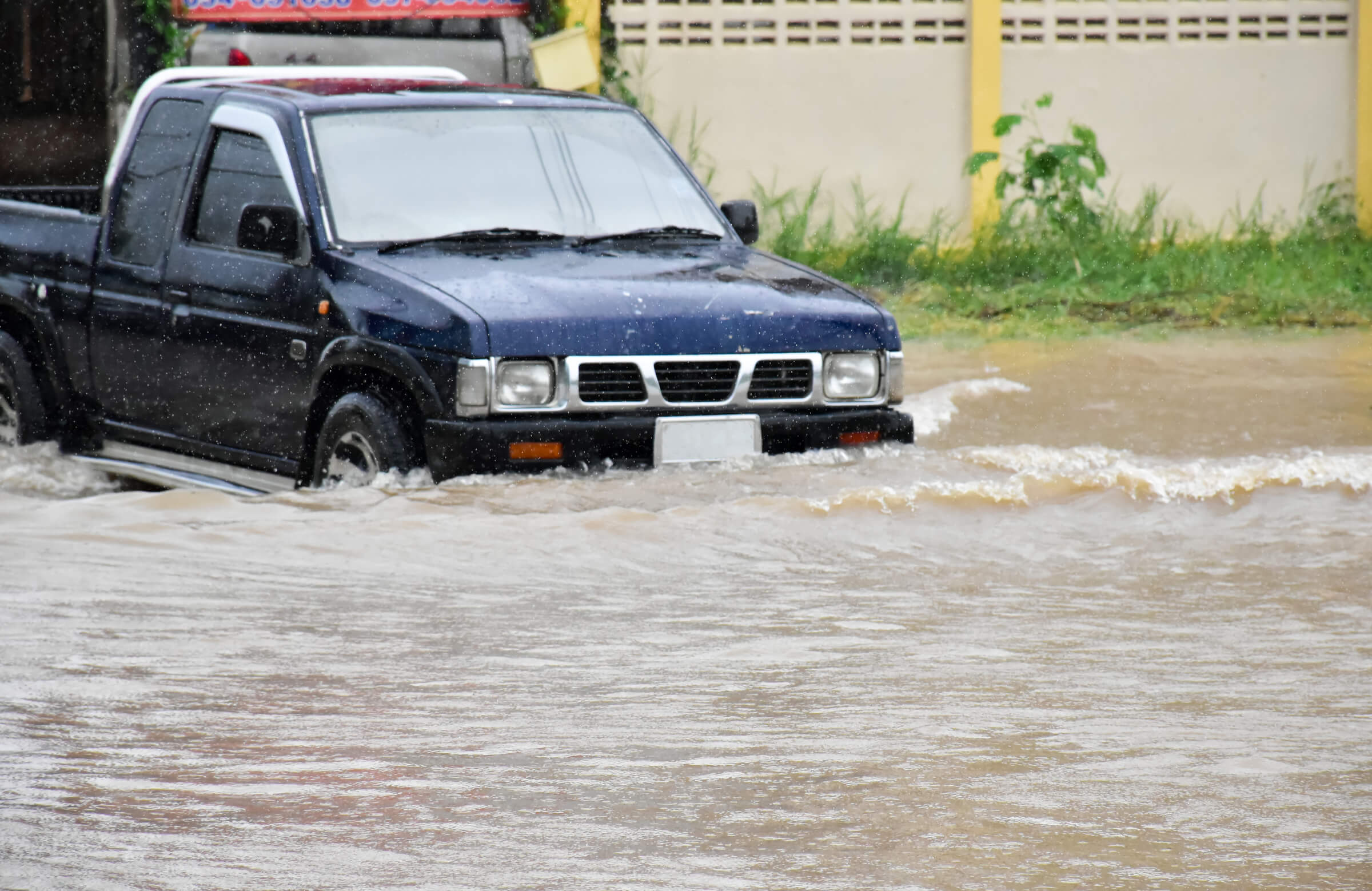
Living in a Flood Zone? What Your Auto Policy Might Not Cover

by Erin Anderson
If you live in an area that's prone to flooding — or even one where summer storms roll in fast — protecting your car from water damage is more important than you might think. Just a few inches of water can total a vehicle, and even minor flooding can lead to big repair bills.
The problem? Many drivers don't realize their insurance doesn't automatically cover flood damage. And by the time you find out, it's usually too late.
If you're living in or near a flood zone, here's what to check in your auto policy — and what you might be missing.
Start by Checking Your Coverage Type
Not all insurance policies cover flood damage. In fact, basic liability and collision coverage won't help at all if your car is damaged in a storm. To be protected, you'll need comprehensive coverage — the part of your policy that covers non-collision events like theft, fire, and yes, floods.
Don't assume you have it. Comprehensive is often optional, especially on older cars or if you've tried to cut your premium down. If it's not listed on your policy, water damage won't be covered — period.
Know What's (Still) Not Covered
Even with comprehensive coverage, there are some common gaps and exceptions. For example:
- Personal belongings inside your car (like electronics or gym bags) usually aren't covered
- Aftermarket upgrades may be excluded unless specifically listed
- Damage may be denied if the vehicle was left in a known flood-risk area without precautions
It's also worth checking your deductible — if it's high, even a covered claim might still cost you more than you expect out-of-pocket.
Don't Underestimate the Damage Flooding Can Do
Water doesn't just soak your floor mats. It can ruin your car's electrical systems, warp the engine, and trigger corrosion that shows up months later. Even a brief soak can lead to long-term issues — and in many cases, insurance companies will declare the car a total loss.
Without the right coverage, the cost of repairs (or a replacement) could fall entirely on you.
Protect Your Car Before the Next Storm
You can't control the weather, but you can make sure your insurance is ready for it. Take a few minutes to:
- Confirm that you have comprehensive coverage on your current policy
- Ask about exclusions or coverage limits tied to natural disasters
- Park on higher ground when possible — especially during storm season
- Avoid driving through standing water, even if it doesn't look deep
And if you're financing your car, this is also a good time to look into gap insurance, which can help if your car is totaled and you owe more than it's worth.
The Bottom Line
If you live in a flood zone — or even an area with heavy seasonal rain — it's worth double-checking your policy now. The right coverage can mean the difference between a quick claim and a major financial setback.
And while you're reviewing your policy, it might be a smart time to shop around. If your current plan doesn't include flood protection or comes with a high deductible, comparing quotes could uncover better options — and potentially lower rates, too.